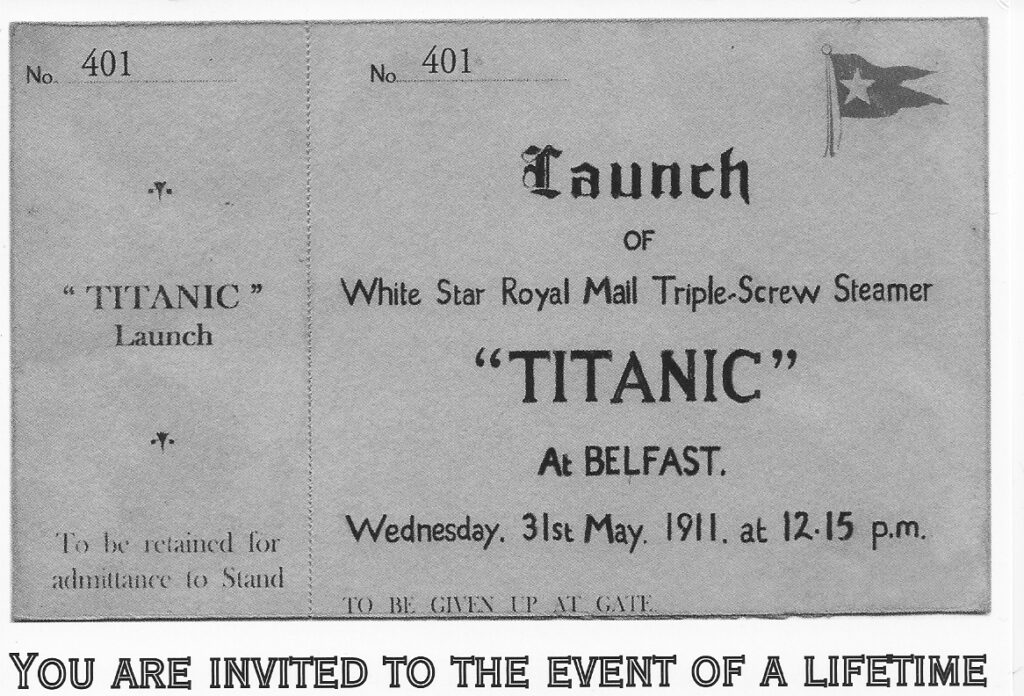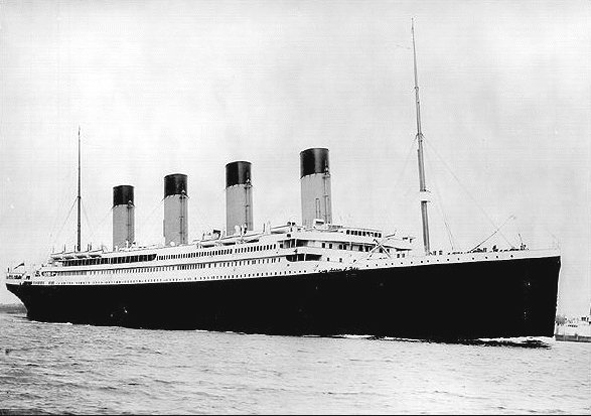“It was terrible, that wreck! It cannot be described in all its horror and detail. I think of it with the terrible fear upon me again”. These are the words of Castleconnell woman Nora Keane who made her own small place in history as one of only 705 people to survive the sinking of the Titanic. More than 1500 more perished in the early hours of April 15th 1912, less than three hours after the world’s biggest and most luxurious liner struck an iceberg. Nora’s recollections of that disastrous night, told to a reporter at ‘The Patriot News’ of Harrisburg, Pennsylvania, resonate down the generations. “I was ready for bed as were most of the passengers who had not already gone to sleep when the officers came and told us to leave the ship. They told us to put on life preservers as the vessel was in bad shape. We did this: then went on deck”, she said. Prior to the steward’s announcement, there had been no indication of trouble Nora said, although she recalled sensing a slight shock. The night was cold and clear on deck and Nora found the officers had perfect control of everything. There was some excitement amongst some of the people but not what you would expect under the circumstances. The officers called out who was to go in the lifeboats and the crew showed every courtesy in lowering women and children into the boats. Nora Keane was fortunate she got out in the fourth or fifth lifeboat. The men passengers stood back; without doubt they sacrificed their lives to give the women and children the preference, she said. One man however, made it into their lifeboat. “No one saw him go when we got into the boat, we tramped over him for some time, but didn’t see him or even know that we were stepping on a human form”, said Ms Keane. But the man afterwards proved useful: being able to handle the boat, which contained 55 passengers. “The sea was calm, it was not a large boat and we were much crowded”, had the sea been choppy, the lifeboat surely would have capsized. Nora told the reporter. She also recalled the horror of being unable to help victims in the water. “Two men floated by us, both of them had life preservers; one of them dropped low in the water. He did not call, the other called us to take him on board, but it was impossible. Our boat barely floated. The man in the water called “Good Bye”, and then his head went down a little later. He disappeared out of sight…. that was the case with many others”.

It was a terrible sight to witness, one which cannot be forgotten. The sight of men in the sea was awful, she recalled. From the lifeboat, Nora saw the Titanic go down, at approximately 2.20am on April 15. The ship seemed to go down, forward and rise to an awful height all at once. There was a roar and a deafening sound. The cries and moans of those passengers and crew in the water were awful….very soon there was nothing to be seen or heard. Nora recalled that the ship went down about 100 yards from where their boat was, with bodies drifting past them and pieces of the wreck all around. She remembered the band playing “And that band played, I don’t know how the men did it, while we drifted”. Men jumped into the sea, but the band played on. “Some of them must have stood in water that was by then over the deck, while they played, for we were on nearly the same level with the deck, then”. They played ‘Nearer My God to Thee’ till the ship rose and then went out of sight. “They must have been playing when it went down”, said Nora. “And the 705 survivors were picked up by the Carpathia about daybreak”. It was ‘The Patriot’ who told her brothers in Harrisburg that she was safe, having previously reported their anxiety about her. At 9.15 am on April 18th, the Carpathia docked in New York where Nora was met by her brothers Dennis, William, Patrick and John Keane. Dennis described the scene for ‘The Patriot’… “The ship made a beautiful appearance as she came almost silently up. There was no sound. I believe that a pin could have been heard fall up to the time the gangways were lowered for the passengers. Down the planks came the survivors. The big lines of police stood silent too. Then people would break out of the ranks and take their loved ones in their arms”, he said.
Nora was born on March 30th 1864 to John and Honora Keane and was one of a family of seven boys and two girls. She emigrated with five brothers to the US in the 1890s and settled in Harrisburg, Pennsylvania. She had been on an extended visit to her mother in 1912 when she booked her passage back on the Titanic. It is believed that she intended to return on an earlier boat, but decided she would be more comfortable on the Titanic, where she was a second class passenger; having paid £12 -7 shillings for her ticket numbered 226593. She was just 48 at that time. Sr. Noreen Keane her grandniece, recalls “She was a tall woman who walked with a very straight back”. She also remembered that she was a very religious person who often spoke about the Titanic, and how she lost her rosary beads when she was on the tender bringing her out to the ship in Cobh, then Queenstown. She considered this a terrible augury and kept repeating to her cabin companion, Edwina Trout, later Mackenzie that she felt something awful was going to happen.
Mrs. Mackenzie told Sr. Noreen when they met in 1983 that on the night the Titanic sank, Nora’s response to the steward’s pleas to hurry up to the deck was “I am not going anywhere without my corsets”. This corset nearly got in the way of Nora Keane being saved from a watery grave… because it took so much time to lace it up that her companion, Edwina Trout became quite anxious with her. Arthur Merchant, Titanic scholar explains: “Winnie returned to her cabin, one woman Susie Webber had already left, the other, Nora Keane from Ireland was still dressing”. The three women had been sharing compartment 101 on E deck aft, Edwina Celia Trout, 27 was from Bath, heading back to a sister in Massachusetts. Aussie Webber was from Devon bound for Hartford, Connecticut. Both also survived.
After the tragedy, Nora returned to Harrisburg where she made her home with another brother Michael, who had a hotel there. Her name continued to appear in local directories until 1919. According to Sr. Noreen, Nora returned to Castleconnell in the 1920s and lived with her brother, Peter and his family until her death on December 20th 1944 at the age of 80.

